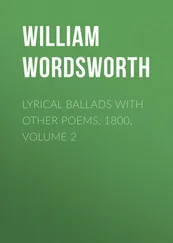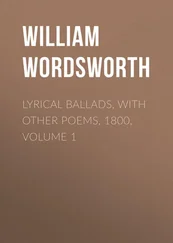Samuel Coleridge - Lyrical Ballads, With a Few Other Poems (1798)
Здесь есть возможность читать онлайн «Samuel Coleridge - Lyrical Ballads, With a Few Other Poems (1798)» весь текст электронной книги совершенно бесплатно (целиком полную версию без сокращений). В некоторых случаях можно слушать аудио, скачать через торрент в формате fb2 и присутствует краткое содержание. Год выпуска: 2005, Жанр: Поэзия, на английском языке. Описание произведения, (предисловие) а так же отзывы посетителей доступны на портале библиотеки ЛибКат.
- Название:Lyrical Ballads, With a Few Other Poems (1798)
- Автор:
- Жанр:
- Год:2005
- ISBN:нет данных
- Рейтинг книги:5 / 5. Голосов: 1
-
Избранное:Добавить в избранное
- Отзывы:
-
Ваша оценка:
- 100
- 1
- 2
- 3
- 4
- 5
Lyrical Ballads, With a Few Other Poems (1798): краткое содержание, описание и аннотация
Предлагаем к чтению аннотацию, описание, краткое содержание или предисловие (зависит от того, что написал сам автор книги «Lyrical Ballads, With a Few Other Poems (1798)»). Если вы не нашли необходимую информацию о книге — напишите в комментариях, мы постараемся отыскать её.
Lyrical Ballads, With a Few Other Poems (1798) — читать онлайн бесплатно полную книгу (весь текст) целиком
Ниже представлен текст книги, разбитый по страницам. Система сохранения места последней прочитанной страницы, позволяет с удобством читать онлайн бесплатно книгу «Lyrical Ballads, With a Few Other Poems (1798)», без необходимости каждый раз заново искать на чём Вы остановились. Поставьте закладку, и сможете в любой момент перейти на страницу, на которой закончили чтение.
Интервал:
Закладка:
THE COMPLAINT OF A FORSAKEN INDIAN WOMAN
[ When a Northern Indian, from sickness, is unable to continue his journey with his companions; he is left behind, covered over with Deer-skins, and is supplied with water, food, and fuel if the situation of the place will afford it. He is informed of the track which his companions intend to pursue, and if he is unable to follow, or overtake them, he perishes alone in the Desart; unless he should have the good fortune to fall in with some other Tribes of Indians. It is unnecessary to add that the females are equally, or still more, exposed to the same fate. See that very interesting work, Hearne's Journey from Hudson's Bay to the Northern Ocean . When the Northern Lights, as the same writer informs us, vary their position in the air, they make a rustling and a crackling noise. This circumstance is alluded to in the first stanza of the following poem. ]
Before I see another day,
Oh let my body die away!
In sleep I heard the northern gleams;
The stars they were among my dreams;
In sleep did I behold the skies,
I saw the crackling flashes drive;
And yet they are upon my eyes,
And yet I am alive.
Before I see another day,
Oh let my body die away!
My fire is dead: it knew no pain;
Yet is it dead, and I remain.
All stiff with ice the ashes lie;
And they are dead, and I will die.
When I was well, I wished to live,
For clothes, for warmth, for food, and fire;
But they to me no joy can give,
No pleasure now, and no desire.
Then here contented will I lie;
Alone I cannot fear to die.
Alas! you might have dragged me on
Another day, a single one!
Too soon despair o'er me prevailed;
Too soon my heartless spirit failed;
When you were gone my limbs were stronger,
And Oh how grievously I rue,
That, afterwards, a little longer,
My friends, I did not follow you!
For strong and without pain I lay,
My friends, when you were gone away.
My child! they gave thee to another,
A woman who was not thy mother.
When from my arms my babe they took,
On me how strangely did he look!
Through his whole body something ran,
A most strange something did I see;
—As if he strove to be a man,
That he might pull the sledge for me.
And then he stretched his arms, how wild!
Oh mercy! like a little child.
My little joy! my little pride!
In two days more I must have died.
Then do not weep and grieve for me;
I feel I must have died with thee.
Oh wind that o'er my head art flying,
The way my friends their course did bend,
I should not feel the pain of dying,
Could I with thee a message send.
Too soon, my friends, you went away;
For I had many things to say.
I'll follow you across the snow,
You travel heavily and slow:
In spite of all my weary pain,
I'll look upon your tents again.
My fire is dead, and snowy white
The water which beside it stood;
The wolf has come to me to-night,
And he has stolen away my food.
For ever left alone am I,
Then wherefore should I fear to die?
My journey will be shortly run,
I shall not see another sun,
I cannot lift my limbs to know
If they have any life or no.
My poor forsaken child! if I
For once could have thee close to me,
With happy heart I then would die,
And my last thoughts would happy be,
I feel my body die away,
I shall not see another day.
THE CONVICT.
The glory of evening was spread through the west;
—On the slope of a mountain I stood;
While the joy that precedes the calm season of rest
Rang loud through the meadow and wood.
"And must we then part from a dwelling so fair?"
In the pain of my spirit I said,
And with a deep sadness I turned, to repair
To the cell where the convict is laid.
The thick-ribbed walls that o'ershadow the gate
Resound; and the dungeons unfold:
I pause; and at length, through the glimmering grate,
That outcast of pity behold.
His black matted head on his shoulder is bent,
And deep is the sigh of his breath,
And with stedfast dejection his eyes are intent
On the fetters that link him to death.
'Tis sorrow enough on that visage to gaze.
That body dismiss'd from his care;
Yet my fancy has pierced to his heart, and pourtrays
More terrible images there.
His bones are consumed, and his life-blood is dried,
With wishes the past to undo;
And his crime, through the pains that o'erwhelm him, descried,
Still blackens and grows on his view.
When from the dark synod, or blood-reeking field,
To his chamber the monarch is led,
All soothers of sense their soft virtue shall yield,
And quietness pillow his head.
But if grief, self-consumed, in oblivion would doze,
And conscience her tortures appease,
'Mid tumult and uproar this man must repose;
In the comfortless vault of disease.
When his fetters at night have so press'd on his limbs,
That the weight can no longer be borne,
If, while a half-slumber his memory bedims,
The wretch on his pallet should turn,
While the jail-mastiff howls at the dull clanking chain,
From the roots of his hair there shall start
A thousand sharp punctures of cold-sweating pain,
And terror shall leap at his heart.
But now he half-raises his deep-sunken eye,
And the motion unsettles a tear;
The silence of sorrow it seems to supply,
And asks of me why I am here.
"Poor victim! no idle intruder has stood
"With o'erweening complacence our state to compare,
"But one, whose first wish is the wish to be good,
"Is come as a brother thy sorrows to share.
"At thy name though compassion her nature resign,
"Though in virtue's proud mouth thy report be a stain,
"My care, if the arm of the mighty were mine,
"Would plant thee where yet thou might'st blossom again."
LINES WRITTEN A FEW MILES ABOVE TINTERN ABBEY, ON REVISITING THE BANKS OF THE WYE DURING A TOUR, July 13, 1798.
Five years have passed; five summers, with the length
Of five long winters! and again I hear
These waters, rolling from their mountain-springs
With a sweet inland murmur. [4] The river is not affected by the tides a few miles above Tintern.
—Once again
Do I behold these steep and lofty cliffs,
Which on a wild secluded scene impress
Thoughts of more deep seclusion; and connect
The landscape with the quiet of the sky.
The day is come when I again repose
Here, under this dark sycamore, and view
These plots of cottage-ground, these orchard-tufts,
Which, at this season, with their unripe fruits,
Among the woods and copses lose themselves,
Nor, with their green and simple hue, disturb
The wild green landscape. Once again I see
These hedge-rows, hardly hedge-rows, little lines
Of sportive wood run wild; these pastoral farms
Green to the very door; and wreathes of smoke
Sent up, in silence, from among the trees,
With some uncertain notice, as might seem,
Of vagrant dwellers in the houseless woods,
Or of some hermit's cave, where by his fire
The hermit sits alone.
Интервал:
Закладка:
Похожие книги на «Lyrical Ballads, With a Few Other Poems (1798)»
Представляем Вашему вниманию похожие книги на «Lyrical Ballads, With a Few Other Poems (1798)» списком для выбора. Мы отобрали схожую по названию и смыслу литературу в надежде предоставить читателям больше вариантов отыскать новые, интересные, ещё непрочитанные произведения.
Обсуждение, отзывы о книге «Lyrical Ballads, With a Few Other Poems (1798)» и просто собственные мнения читателей. Оставьте ваши комментарии, напишите, что Вы думаете о произведении, его смысле или главных героях. Укажите что конкретно понравилось, а что нет, и почему Вы так считаете.












